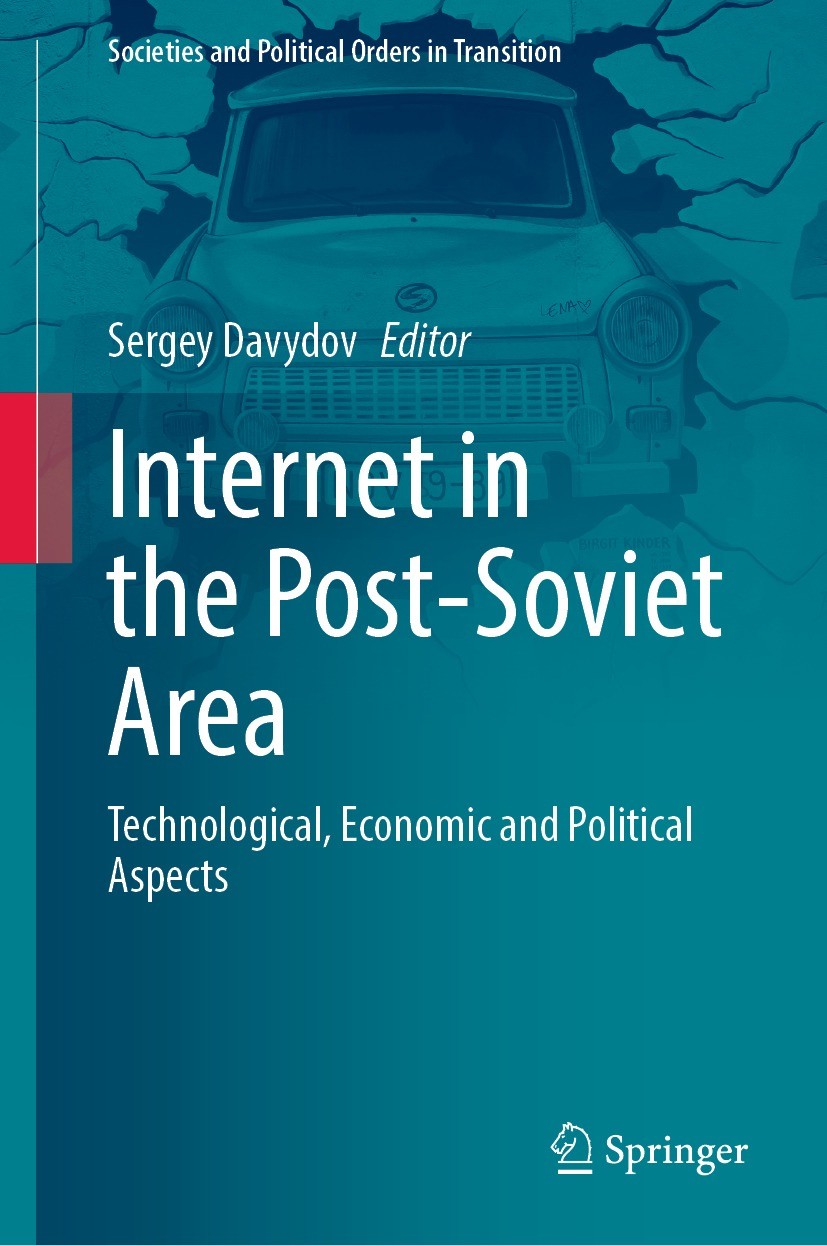
Also, two contributors, Anastasia Saponova and Sergei A. Samoilenko will join the talk to present their chapters. Saponova will cover the media literacy in Central Asia, while Samoilenko will delve into the cancel culture in contemporary Russian public discourse.
The Online talk will be held in Zoom on February 13 from 12:00 to 13:30 (Helsinki time). If you wish to participate and receive emails with updates about the future online talks, please leave your contact information here by February 12, 18:00: registration form. If you have already subscribed to the Online talks mailing list, you don’t need to register again: you will receive further information via email.
About the research: The book “Internet in the Post-Soviet Area – Technological, Economic and Political Aspects” offers a comparative perspective on the Internet development in the post-Soviet countries. In doing so, international experts analyze similarities and differences in various countries throughout the chapters. The volume consists of two parts. The chapters of the first part examine the post-Soviet area as a whole. The second part includes specific case studies on the development of the Internet, either in individual countries or in groups of countries. Countries analyzed are Estonia, Ukraine, Russia as well as three Central Asian countries: Kazakhstan, Uzbekistan and Tajikistan. Topics covered in the volume include, but are not limited to measurement, dynamics, and structure of each national Internet audience; the history of the Internet in the post-Soviet countries; development of infrastructure; Internet regulation and institutional aspects; online markets such as telecommunications, online advertising, e-commerce, and digital content; social and cultural aspects; as well as the transformation of the national media systems. This book is a must-read for students, researchers, and scholars of political science and economics, as well as policymakers and practitioners interested in a better understanding of Internet development in the post-Soviet area.
Chapter “Measuring Media Literacy Level: A Case of Central Asia“: Since the middle of 1970s, the concept of media literacy has been actively developing in the various disciplinary approaches. At the same time, there is still a shortage of comparative study of media literacy at country level. The chapter provides results of the cross-country studies, conducted in 2019 and 2021 in the Central Asian countries (Kazakhstan, Tajikistan and Uzbekistan). The authors highlight the main communicative practices and сharacteristics of media literacy level of the countries’ population. The chapter presents the methodology for measuring media literacy, including two models of the media literacy index, that has shown its consistency for cross-country research. Special attention is drawn to the social and economic differences of the countries, that may influence the media literacy level.
Chapter “Cancel Culture and Novaya Etika in Russian Public Discourse“: Using the prism of moral conflict between conservative and progressive worldviews, this presentation examines how the social phenomenon of cancel culture has influenced Russian public discourse. The presentation also addresses the concept of novaya etika, a new term used by Russian conservatives and liberals to make sense of debates in the West concerning changing views of history, culture, and morality. There are several perspectives on cancel culture in Russia. Most pronounced is the traditionalist perspective which dismisses cancel culture as an alien ideology that is harmful to the domestic system of conservative values. While cancel culture applies to a broad range of social issues, this presentation examines mainly the cases inspired by the #MeToo movement across different organizational settings. The authors argue that the rhetoric of canceling can be used by rightwing as well as leftwing groups.
Speakers’ bio:
Sergey Davydov is professor of sociology and social integration. His research interests include sociology of culture, media and communications, and methodology of social research. He is author of book “Notebook of Media Sociologist” (2020, in Russian) and editor of books “Internet in Russia: A Study of the Runet and Its Impact on Social Life” (2020) and “Internet in the Post-Soviet Area: Technological, Economic and Political Aspects” (2023).
Anastasia Saponova is a PhD candidate in social sciences and deputy director at the ZIRCON Research Group. Her primary research interests are media and communication studies.
Sergei A. Samoilenko is assistant professor in the Department of Communication at George Mason University: His research focuses on issues of public character, reputation management, subversive communication, and crisis management. He is a co-founder of the Research Lab for Character Assassination and Reputation Politics (CARP), an interdisciplinary research community studying strategies and tactics of subversive communication and reputation management. He has coauthored and co-edited several books, including “Character Assassination and Reputation: Management Theory and Applications”, “Routledge Handbook of Character Assassination and Reputation Management”, “Handbook of Research on Deception, Fake News, and Misinformation Online”, and “Media and Public Relations Research in Post-Socialist Societies”.
Moderator: Katja Lehtisaari (Tampere University).
Online talk on Russian Media is a collaborative initiative between Russian Media Lab Network, University of Helsinki, and Tampere Research Center for Russian and Chinese Media.
Photo by Soviet Artefacts on Unsplash

